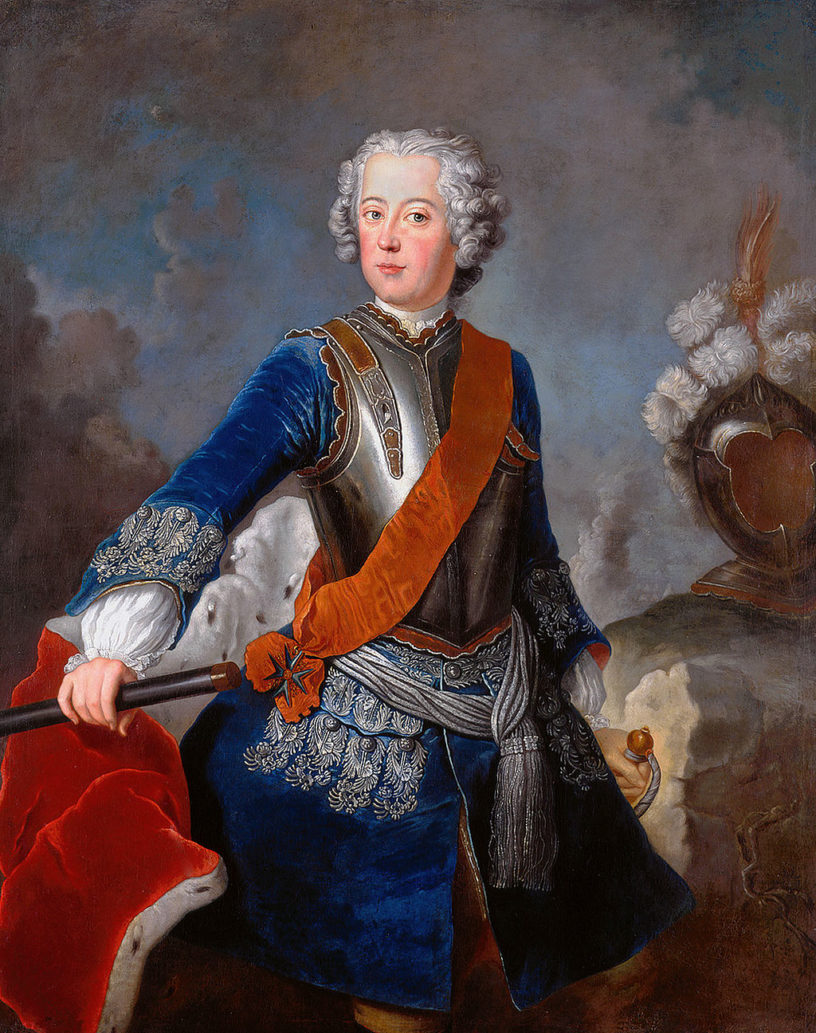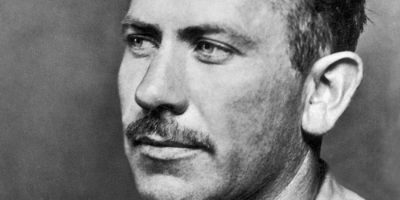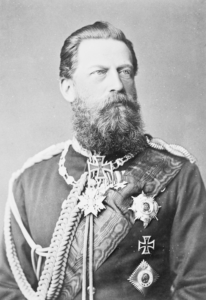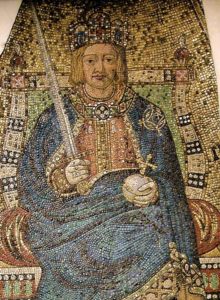10 Famous German Kings and Monarchs
The German Empire was a constitutional monarchy with an Emperor at its helm. The Emperor had advisors, the Bundesrat who guided him. Additionally, the office of a very powerful Chancellor who carried out the Emperor’s bidding was also in place. Germany’s leadership also included an elected representative assembly known as the Reichstag.
Adolf Hitler easily comes to mind when medieval German leadership is considered. However, there is a host of other notable kings and monarchs’ pre and post-Hitler. Here’s a look at 10 famous German Kings and Monarchs.
1. Wilhelm II
Also known as William II, Prussia is known to have achieved considerable expansion under this emperor. He was born in 1744 in Berlin and was Queen Victoria’s eldest grandchild. Wilhelm II was intelligent and artistic. He, however, fell short when he took over as King.
From his younger years, Wilhelm II was exposed to the military society of the Prussian aristocracy. To further fill his canvas of ideals was the hyper-masculine military culture of Prussia. When he commenced his military career, Wilhelm II changed to conform to what he thought was ideal for the position. He was no longer polite and agreeable. Wilhelm II was said to also have quite a temper.
Wilhelm II was popular amongst his people for abolishing the state monopoly on coffee and tobacco. He however recovered the lost revenue by increasing the excise duty on beer, flour, and sugar.
Wilhelm II is credited with the growth of art and culture in Germany, especially Berlin. He encouraged painting, architecture, theatre and music. Mozart and Beethoven are said to have visited Wilhelm II and dedicated chamber music to him.
Wilhelm married Princess Augusta Victoria with whom he had seven children. He also married Princess Hermine Reuss of Greiz, and she was his companion till his death.
Wilhelm II deloped a weak and noticeably short left arm during childhood. This condition is mostly from nerve damage caused by the use of excessive force during a breech delivery.
2. Henry I
Henry belonged to the Liudolfing line of Saxon dukes. His father was Otto I of Saxony, but Henry I is considered the founder of the Saxon Dynasty. Born in 876 in Memblen, Germany, Henry took over the throne after his father died in the 10th century and is credited with the transformation of medieval Germany formerly East Francia into the kingdom of Germany. He also fortified the army, regained control of Lorraine, secured German borders from pagan incursions and encouraged the growth of towns. He was one busy and efficacious ruler!
Messengers that went to inform Henry I that he was to be the next king he was laying bird snares! This earned him the nickname Henry the Fowler.
Henry married Hathberg Von Merseburg but the marriage was annulled- Hathberg had become a nun after the death of her first husband. Henry later married Matilda, Count of Westphalia. He had at least six children out of the two marriages. Henry’s second wife established many religious institutions. She was later canonized.
3. Frederick II
Frederick the Great grew up in discord with his father, Frederick William I who was King of Prussia (Prussia is a historically prominent German state). He detested Frederick the Great’s artistic and intellectual tastes, as well as had disdain for his father’s strict standards. Frederick the Great suffered public criticism and physical violence at his father’s hands. He was once imprisoned for attempting to flee and had to watch his accomplice murdered for helping him
Fredrick II was stripped of his military rank but was restored when he partially reconciled with his father. When he got back in his father’s good books, Frederick II had renewed commitment and he filled in on the knowledge of government and international relations.
When his father died, Frederick II took over and with fervor too. He was very strategic, and the knowledge he gathered reading up was an advantage to him. He made changes in policy that favored and grew his kingdom.
Frederick had laid a good foundation for the next ruler, who happened to be his son- it is refreshing that Frederick II acknowledged his father’s good governance, and even acknowledged him when he could despite their differences and tumultuous relationship.
Frederick the Great’s major objective as a leader was to increase the power of the state. He also had humanitarian goals. His name Frederick “the Great” came about from the great expansion Prussia experienced under his rule, thus becoming a great military power to contend with during his reign.
4. Otto IV
Otto IV was a Holy Roman Emperor and King, and a member of the Welf Dynasty. He was made York in 1190, and count of Poitou and duke of Aquitaine in 1196. Otto IV faced opposition from two Hohenstaufen kings for the most part of his rule. This stemmed from his election to the throne that opposed that of another.
When the Hohenstaufen emperor Henry VI died, his son the heir was an infant. Two opposing sides were each in favor of Philip of Swabia and Otto IV. Otto was elected king by the German anti- Hohenstaufen faction; this contention brought about war. Philip was murdered after which a new election was held with Otto IV becoming the winner.
5. Georg Friedrich
Georg Friedrich is one of the new bloods that have ensured continuity or recognition of their dynasties. He is a Prince of Prussia, currently the head of the House of Hohenzollern, Prussian branch. The House of Hohenzollern was the former ruling dynasty of the German Empire of the Kingdom of Prussia.
With the dissolution of the monarchy, Georg Friedrich can be said to have led a somewhat normal life. He was raised by his paternal grandfather Louis Ferdinand. George Friedrich served a two-year commission in the Alpine troops of the Bundeswehr.
Prince George Friedrich was in the limelight in a high- profile fight with the German government over the property once owned by the former royal family. His family. The property had been ceded to the government while some had been taken over during the process of democracy.
Perhaps all Prince Friedrich wants is the preservation of his family’s legacy, something the great-grandchildren can hold on to.
Apart from the claim by Georg Friedrich that brought him to the spotlight, the prince leads a private life as a businessman and citizen.
6. Rudolf I
He was the first German King of the Habsburg dynasty. Rudolf inherited large estates from his father when he died, all of them around the ancestral seat of Habsburg Castle. His election to power was very carefully orchestrated; Rudolf endeared himself to the Pope by renouncing all imperial rights in Rome which was the papal territory. The Pope who held much influence endorsed Rudolf and influenced two other leaders to support Rudolf who went on to win over two other contenders from the Hohenstaufen dynasty.
Under Rudolf’s belt during his reign were the duchies of Austria and Styria that he conquered. These were territories central to the Habsburg Monarchy, present-day Austria.
Rudolf is remembered for establishing the House of Habsburg as a powerful dynasty in the southeastern part of the realm.
From his first marriage to Gertrude of Hohenberg, Rudolf I had a son and several daughters. He took on a second wife, Isabel of Burgundy. Rudolf was determined to place Albert his son on the throne as German king or king of the Romans, but he didn’t succeed as the Germans dispelled the notion that the crown should be hereditary and maintained the freedom to choose a king.
7. Frederick William III
Frederick William III is one of the few German Monarchs who managed to somewhat unify churches. His goal was to have centralized royal control of all Protestant churches- Frederick William III and his government eventually had full control over church affairs, with William as the leading bishop!
The outfit that enabled the king to do this was called the Church of the Prussian Union that brought together the Lutheran church and the Reformed Protestants.
Frederick William III was born in 1770 growing up shy and reserved. He also grew up largely under the care of tutors and suffered neglect from his father, but received the training of a Prussian prince. He became a lieutenant colonel and was exposed to campaigns on his country’s behalf.
Frederick William’s marriage to Louise of Mecklenburg- Strelitz was one of a kind, especially since it defied the norm in that era- his was a problem-free marriage devoid of public scandals. Louise was also loved by the Prussians, giving the House of Hohenzollern a popularity boost. They had ten children.
When he came into power in 1797, the first order of business for Frederick William III was to restore moral legitimacy to his dynasty whose reputation had gone to the dogs with the previous regime under his father’s leadership.
8. Frederick III
Frederick William was born in the most powerful of the German states into the House of Hohenzollern in 1831. He grew up with a younger sister that helped neutralize the loneliness he felt as a child, stemming from his parents’ troubled marriage.
Emperor Frederick William had the befit of the traditional Hohenzollern military education as well as a classical education. He became knowledgeable in military traditions, liberal arts, foreign languages, and was fluent in English, French, and Latin. He also studied history, geography, physics, music and religion. His excellence in gymnastics was the cherry on top. Frederick was the first Prussian Prince to attend university!
Frederick’s ethos was that a state should not act against the popular opinion of its inhabitants. He was a liberal who had planned to liberalize Germany by appointing more liberal ministers, limit the office of Chancellor and basically reorganize Germany.
Historians believe that this Emperor might have transformed Germany, and move it away from its military approach in war- Author Michael Freund opined that Frederick had the potential to avert both world wars.
Emperor Frederick William died from cancer of the throat and was succeeded by his son.
9. Henry IV
Henry IV was the King of Germany from 1054 to 1105. He was also a Holy Roman Emperor who got himself excommunicated after a long conflict with Pope Gregory IV.
Henry’s father, Henry III had the throne secured for his son such that when he died, 6-year old Henry IV was sure to succeed him thus his dynasty would survive. Henry’s mother became regent under the advice of Pope Victor II. When he died however, she ended up losing some territory that Henry IV should have ruled over; the equivalent of ancestral land. Duchy of Bavaria, Swabia and Carinthia were traded away to beneficiaries who opposed Henry IV later.
Henry’s mother went on to make some other decisions that affected Henry’s rule. For instance her unwise church policy that had her form an alliance with opponents of church reform. These two were major blunders that weakened the material foundations of the king’s power. They also encouraged the nobles’ greed.
By the time Henry IV was coming to power, there was discontent in the leadership by the people, and thirst for personal gain by leadership; a pattern experienced in a lot of countries today. Perhaps those close to the crown in Henry’s time saw loopholes with a young, ill-prepared king and an unwise regent.
Henry IV missed out on regular education and experienced a lot of instability. He had no moral compass, was reckless and lacked discretion. He ended up power-hungry just like most rulers of his dynasty.
10. Louis IV
Louis IV was the first of the Wittelsberg line of German Emperors. He came into power as a better alternative to Frederick the Fair; the pro- Luxembourg party of the prince-electors settled on Louis to prevent Frederick’s election after Holy Roman Emperor Henry VII died.
Louis IV sent most of his rule dealing with diplomatic and military struggles and defending the right of the empire to elect an emperor without the influence of the papacy. He also fought to consolidate his own position, and to improve the status of his family- Louis desired to raise his family to a royal status such as the houses of Habsburg and Luxembourg. Unfortunately, this didn’t materialize as his family never became a uniform body with the same political motivation.
Born in 1282, Emperor Louis IV was the last born son in his family, therefore not an immediate heir. He, however, was introduced pretty early to high politics, at the age of 11. His brother and mother took opposing sides of political conflict- from this, Louis IV and his brother developed a rivalry.
Louis IV fought with his brother for a long time over territory. He also fought over territory with his cousins from his mother’s side, the Habsburgs, whom he grew up with.
As a leader, Louis IV was courageous and tenacious, and as a person jovial and chivalrous. Together with these, Louis was also gentle and diplomatic, qualities that endeared him to his subjects. Through negotiations and diplomacy, Louis IV was able to gain territories. He, however, went to war when necessary.
Germany is currently a federal multiparty republic with two legislative houses. The government is headed by a Prime Minister by a majority vote of the Federal Assembly after being nominated by the President.
The former German Empire was a conservative government, but was however progressive in certain areas such as its provision of modern welfare programs such as health insurance and pension programs for the elderly- it was the first country to do this.
Like most, the German dynasties’ main point of contention was territories.
Planning a trip to Paris ? Get ready !
These are Amazon’s best-selling travel products that you may need for coming to Paris.
Bookstore
- The best travel book : Rick Steves – Paris 2023 – Learn more here
- Fodor’s Paris 2024 – Learn more here
Travel Gear
- Venture Pal Lightweight Backpack – Learn more here
- Samsonite Winfield 2 28″ Luggage – Learn more here
- Swig Savvy’s Stainless Steel Insulated Water Bottle – Learn more here
Check Amazon’s best-seller list for the most popular travel accessories. We sometimes read this list just to find out what new travel products people are buying.




















